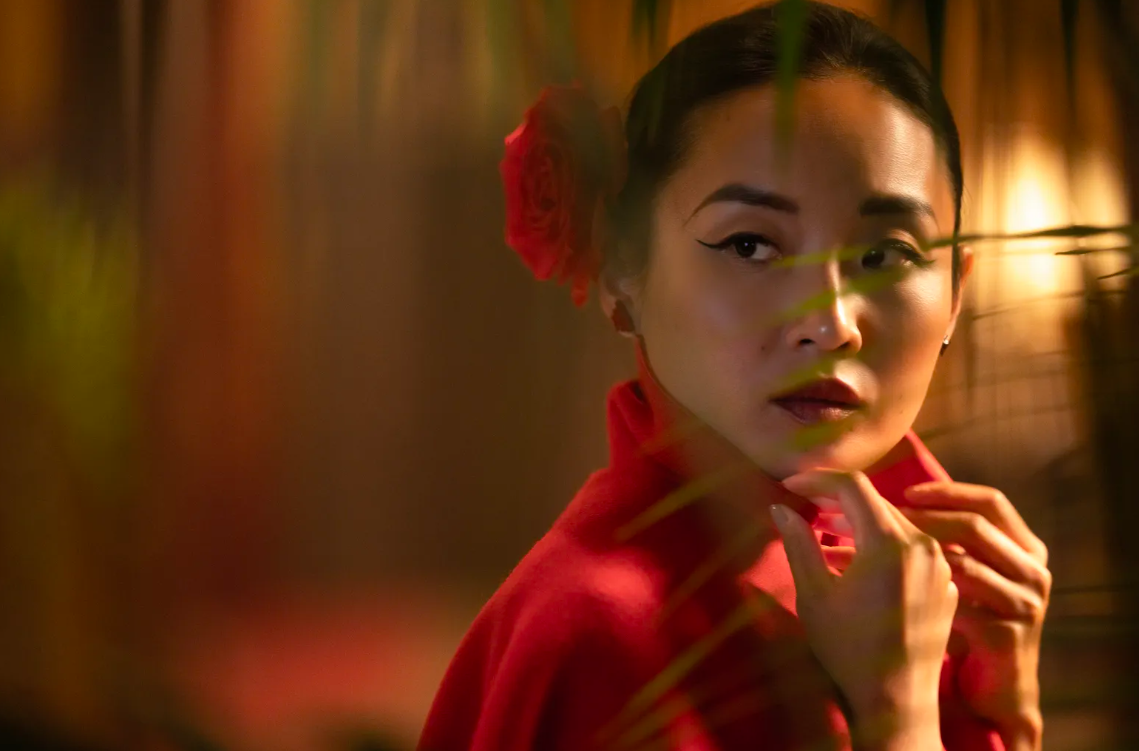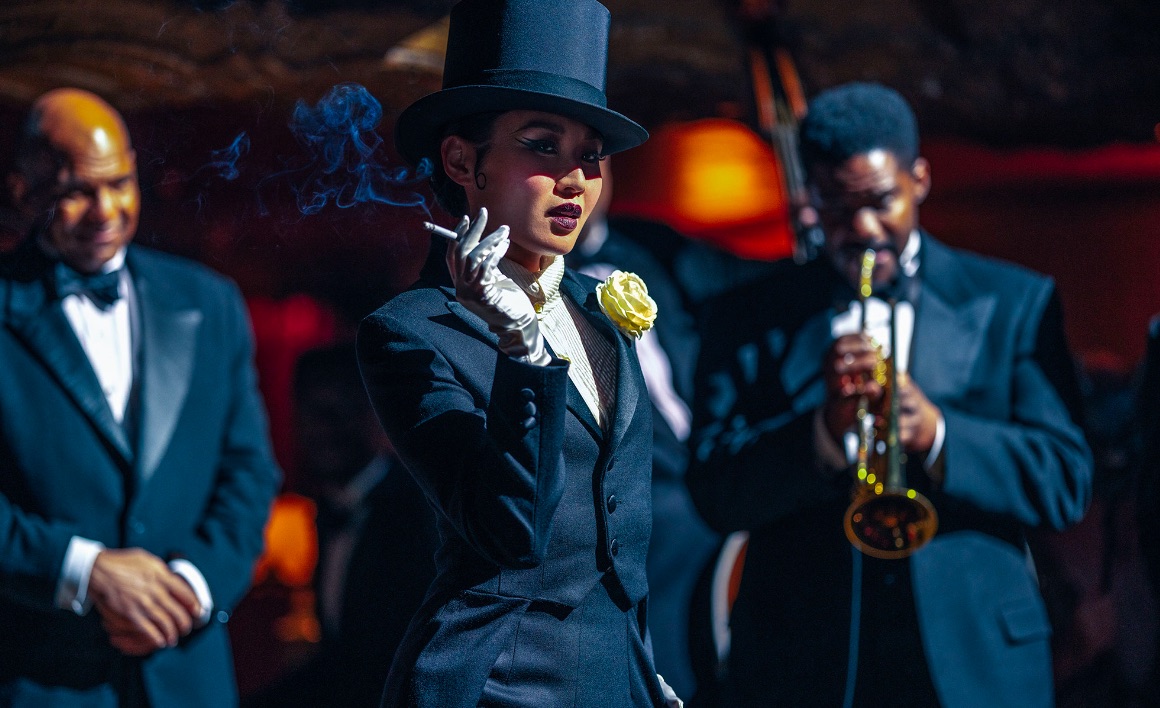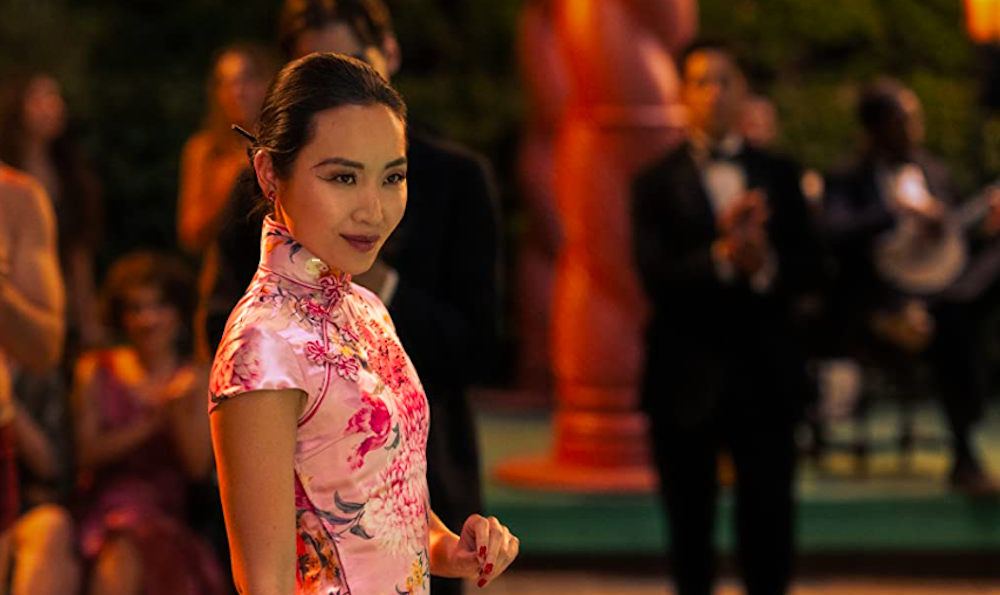Painting a picture of the wild side of Hollywood during the Roaring 20s, ‘Babylon’ follows the stories of several characters as they try to find their place in the film industry. Directed by Damien Chazelle, the film takes us through the ups and downs in the lives of the artists who have to face several challenges while trying to keep up with the changing tides of the movie world. The transition from silent films to talkies is a move that impacts everyone, but there are people like Lady Fay Zhu, who also have to bear the brunt of several prejudices to sustain their careers. Despite all that, Lady Fay Zhu remains one of the most impactful performers in the film. If you’re curious about her real-life inspiration, here’s what you need to know.
Lady Fay Zhu is Inspired by a Real Person

Yes, the character of Lady Fay Zhu in ‘Babylon’ is inspired by actress Anna May Wong, who is considered to be the first Chinese-American superstar. She rose to fame in the 1920s and became one of the most prolific actresses of her time. To prepare for the role, actress Li Jun Li read Wong’s biography, ‘From Laundryman’s Daughter to Hollywood Legend’ by Graham Russell Gao Hodges. Knowing about Wong’s life in detail was really helpful for Li, who found that almost the entire arc of Fay Zhu was a reflection of Wong’s life.
Like Fay Zhu’s family business of a laundromat in ‘Babylon’, Wong’s parents also ran a laundromat. The film also traces a similar arc regarding their careers. Much like what happens in ‘Babylon’, Wong was subject to discrimination throughout her career, which was extremely frustrating for her. It was believed that she was considered to play the role of O-Lan in ‘The Good Earth’ but it went to Luise Rainer, who won the Academy Award for Best Actress for it. It was stuff like this that made Wong move to Europe for some time, just like Fay Zhu does after she is fired from Kinescope. Reflecting upon this, Li said: “I think that Lady Fay has gone through a lot of discrimination. I carried that subtext in her role, not necessarily just being pigeonholed her entire life, but certainly the discrimination that she had endured and how much she’s kind of adapted to navigating around it.”

At first, Li believed that she was supposed to play Wong herself, but later discovered that her character was only inspired by her. Though she was “a little bit disappointed” with this revelation at the beginning, she later found that it gave her and the director the creative freedom to mold Fay Zhu in their own manner. “I felt like we can be more creatively free, and at the same time with a little less pressure when it comes to portraying someone [Wong] so monumental,” the actress said.
There was stuff like the rumors about Wong’s homosexuality that the movie was more forthright about in Fay Zhu’s arc. In other instances, the filmmakers replicated Wong’s looks, like the headshot that Fay Zhu signs for a fan who is starstruck after seeing her in the laundromat. In addition to this, Chazelle also looked towards a different actress to create a particular look for Fay Zhu. In the entrance scene of her character, Li was dressed like Marlene Dietrich in the 1930 film, ‘Morocco’. Even the part of Fay Zhu kissing a woman in the audience is also similar to Dietrich’s act.
In bringing Lady Fay Zhu alive on the screen, Li hopes that the stories of people like Anna May Wong are brought to light. “I really just hope that people will not only know who she is and what she went through but feel everything that a POC has to go through to make it in this world, this industry,” she said. Considering all this, it is clear that even though fictional, the origins of Fay Zhu are rooted in reality.
Read More: Was Babylon’s Elinor St. John a Real Movie Critic?


You must be logged in to post a comment.